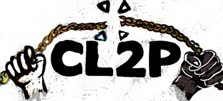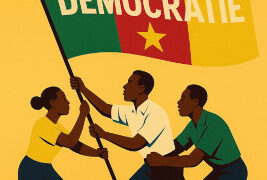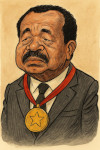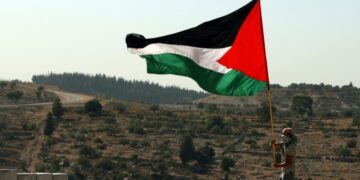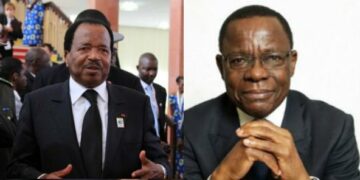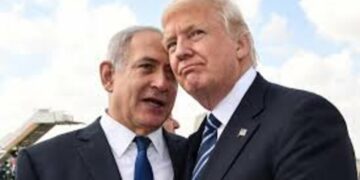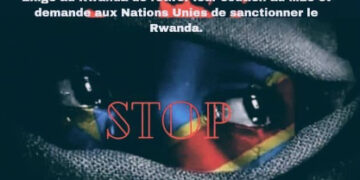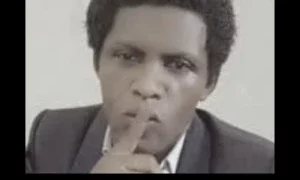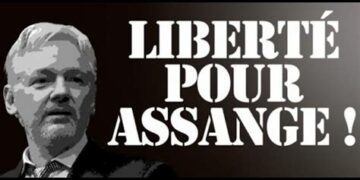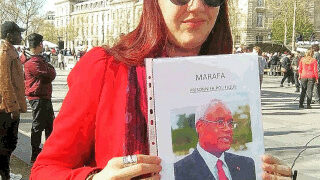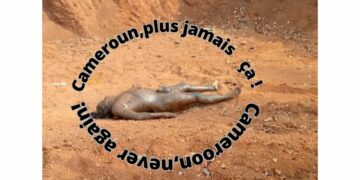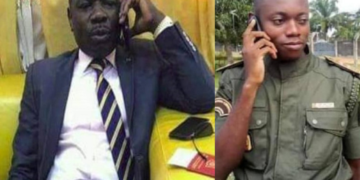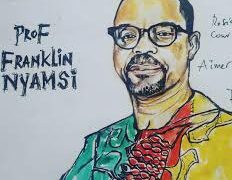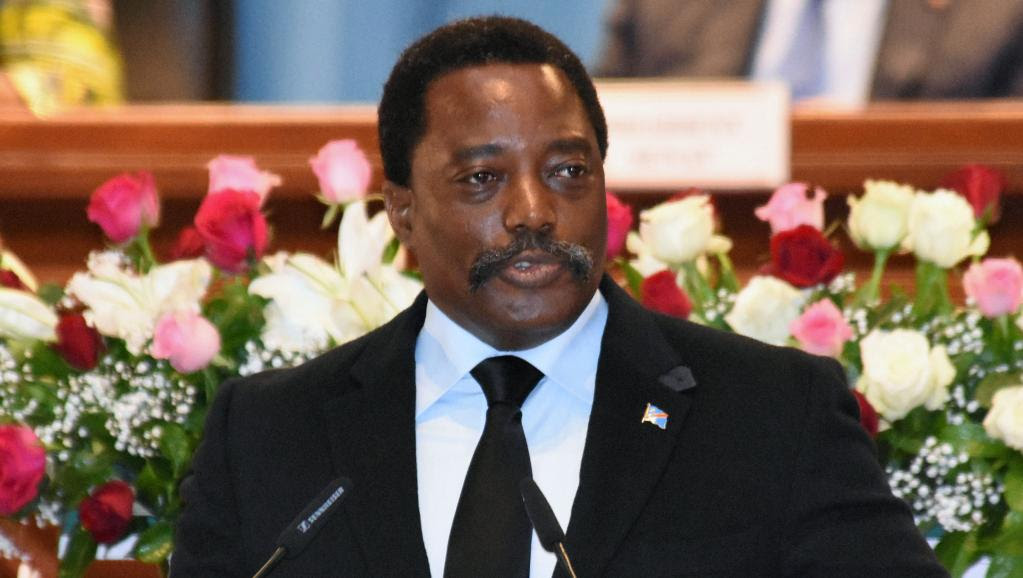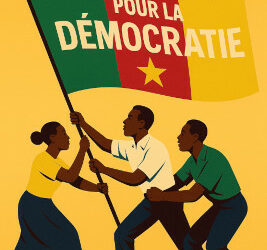C’est une enquête sur un empire en République démocratique du Congo. Ce jeudi matin, l’agence Bloomberg a fait des révélations sur Zoé Kabila, député et frère du chef de l’État, mais ce n’était finalement qu’un prélude. Un rapport du groupe d’étude sur le Congo et du Pulitzer Center publié dans la foulée va plus loin. Il s’intéresse à 13 membres de la famille Kabila et deux très proches associés. Et ce clan Kabila a la main sur au moins 80 sociétés dans des secteurs divers et variés. Ce qui représente des centaines de millions de revenus depuis 2003 et la fin de la guerre.
Ce rapport, c’est finalement l’histoire du clan Kabila. Il fait écho à une petite phrase prononcée en 2006 par la mère de l’actuel président, Joseph Kabila, sur les années d’avant-guerre, avant 1996 et l’AFDL, quand Laurent-Désiré Kabila, le patriarche, vivait avec sa famille en exil en Tanzanie, sous la protection du régime tanzanien. Maman Sifa disait de ces années : « Nous n’avions rien, je cultivais un petit champ et je vendais mes légumes au marché comme n’importe quelle femme pauvre africaine ».
Vingt ans plus tard, selon les données compilées dans cette enquête, 13 membres de la famille, le président et ses enfants inclus, y compris les mineurs, sont à la tête ou ont des parts dans au moins 80 sociétés. Cela représente des centaines de millions de dollars de revenus depuis 2003 et des dizaines de millions en biens matériels.
Une enquête qui risque de faire du bruit en République démocratique du Congo, alors qu’actuellement les caisses de l’Etat sont vides et que les élections qui sont censées entraîner le départ du président Kabila, chef du clan, sont repoussées, notamment au motif qu’il n’y a pas assez d’argent pour les financer. Officiellement, Joseph Kabila, sa sœur Jaynet et son frère Zoé, ayant tous des fonctions officielles, ont dû déclarer tous ces revenus et leurs sources.
Tous les intérêts se croisent
Dans ce rapport, on se rend compte que le clan Kabila possède l’équivalent de dix fois l’île de Manhattan (à New York) de terrains en République démocratique du Congo. Cela représente plus de 73 000 hectares quand la taille moyenne d’une ferme au Congo est de 1,5 hectare.
La ferme Espoir, qui appartient au président Kabila et à ses deux enfants, couvre à elle seule plus de 8 000 hectares. Maman Olive, sa femme, a une fondation, mais aussi des sociétés comme Osifal qui fait un peu de tout : mines, pétrole, construction. Et dans le rapport, on apprend aussi que l’ONU a versé à cette société, officiellement sans le savoir, la coquette somme de 270 000 dollars de loyer en 2015.
La sœur du chef de l’Etat, Jaynet, a des parts dans la société Vodacom Congo et à travers Acacia, une des sociétés de la famille, détient 43 permis d’exploitation de diamants. Elle est aussi associée minoritaire dans une autre société, Kwango, qui en a 53. Et tous ces permis mis bout à bout représentent une zone de quelque 720 km à la frontière avec l’Angola. A cela s’ajoutent les révélations de Bloomberg avec le cas de Zoé Kabila qui un temps raflait 10% du marché de la construction en plein boom au Congo.
Tous les intérêts des frères, des sœurs et des enfants du président se croisent. On fait des affaires en famille chez les Kabila et on s’intéresse à tout, depuis les compagnies aériennes, les permis de conduire, les restaurants jusqu’au minier et les terres.
Ce qu’il faut savoir, c’est qu’il s’agit surtout d’un énorme travail de compilation de sources publiques et accessibles à tous dans ce rapport. Il y a beaucoup de sociétés, parfois des alias, mais l’essentiel de ces relations d’affaires, on peut les découvrir dans les colonnes du Journal officiel ou constater dans les registres du ministère du Commerce que beaucoup des contrats obtenus par la famille le sont dans le cadre d’un cas de force majeure, guerre ou catastrophe naturelle. Ce qui leur permet de se soustraire aux obligations légales, comme de payer des taxes.
[spacer style="1"]
DRC: vast business network of president who won’t step down revealed
All the President’s Wealth report may help explain why Joseph Kabila, who was due to leave presidency last year, argues DRC cannot afford to hold elections

The president currently clinging to power in the Democratic Republic of the Congo and his family have a vast network of businesses reaching into almost every sector of the country’s economy that are thought to have generated hundreds of millions of dollars in revenues since 2003, according to a report.
Joseph Kabila was supposed to step down last year after 16 years as president, but has refused to go, arguing that his country cannot afford to hold elections.
All the President’s Wealth, a report published on Thursday by a research group at New York University, may help to explain why the president – who, polls have showed, would win just 7.8% of the vote if he did allow elections – is so desperate to keep his job.
Kabila owns 71,000 hectares of farmland, both directly and with his children, while his twin sister holds a valuable stake in the state telecoms company, his younger brother has business interests that range from mining and construction to a stake in the Nando’s fast-food chain, and two family companies have diamond mining permits for 450km of the country’s southern border. Together they own more than 80 companies in the DRC and abroad, either wholly or partially, the report says.
“This is the first in a series of reports where we’re trying to hold the leaders of the country accountable to their own laws and their own constitution, and in particular to hold them accountable for the economic management of the country,” said Jason Stearns, director of the Congo research group that published the report.
It describes how the Kabila family, which spent the Mobutu years in exile in Dar es Salaam, living in relative poverty, amassed great wealth.
While there are no laws preventing Congolese politicians from owning businesses, the report raises questions about how the Kabila family has amassed such great wealth in two decades, while more than half of their countrymen survive on less than £1 a day.
It alleges the mining ministry granted a company owned by Jaynet Kabila, the president’s twin sister, more mining permits than its code allows, while other family-owned companies won state contracts and made millions of dollars from subcontracts.
A separate investigation by Bloomberg claimed that the president’s brother, Zoé Kabila, had brought hundreds of millions of dollars to the family through a vast network of businesses.
The report is mostly based on Congolese legal documents, which the research group obtained by simply asking the authorities for them. This is one of the quirks of the DRC, Stearns said.
“It’s not an authoritarian government, it’s a government that often restricts public space and civil liberties,” he said. “But it’s a state that’s very proud of being a state, and so one of the bizarre things about Congo is it’s not a failed state: everywhere you go in the country you’ll see state officials hunched over piles of documents, in love with – fetishising – the state.”
Pre-colonialism, the kingdom of Kongo, in present-day DRC’s south-west corner, was the most powerful state in the region. Later Belgium’s King Leopold, desperate for a colony, seized what he rechristened the “Congo Free State”, a personal business empire using forced labour, masquerading as a philanthropy project. Eventually, Belgium annexed it.
Independence was won in 1960 by a movement led by Patrice Lumumba, but he was killed a few months later by the army, with US and Belgian support. In 1965 Mobutu Sese Seko, the man who would be the country’s long-time dictator, came to power in a coup. Kabila’s father, Laurent-Désiré Kabila, overthrew Mobutu in 1997, but was then assassinated in 2001 by his own bodyguard.
The long-time leader of the opposition, the flat-cap wearing Étienne Tshisekedi, died in February, leaving a deep vacuum as he had failed to anoint a successor. His son, Félix Tshisekedi, took over, while Moïse Katumbi, a wealthy businessman who used to work for Kabila and who in several recent interviews was at pains to point out that he had “never killed anyone”, is another frontrunner.
More than 3,000 people have been killed and 1.4 million displaced in escalating violence in the central province of Kasai, where the UN has identified more than 80 probable mass graves and said it had found toddlers with limbs chopped off and pregnant women with their bellies sliced open, their unborn babies mutilated. The conflict started when communities formed a militia after Kamuina Nsapu, a local leader who opposed the government, was killed last year. But according to the UN the worst atrocities have been carried out by Bana Mura, a new government-sponsored militia sent in to quash the rebellion.
Despite the unending conflict and the president’s rock-bottom popularity, the evidence that the Kabilas have kept a large chunk of their wealth in their home country seems to indicate that they do not intend to leave it any time soon.
Many politicians seeking to profit from their positions of power stash their wealth offshore, and the ruling family may also do that, but they also hold significant Congolese investments.
“Whatever their investments abroad, they’ve invested a huge amount in the Congo, including in things very difficult to liquidate in a short period of time, like real estate. They’ve invested millions of dollars in real estate in recent years around the country,” Stearns said.
“If this was a family interested in robbing the country and leaving the country this is not how they would act. Joseph Kabila’s gone on the record and said I’m not going anywhere, and that is how he’s behaving.”
